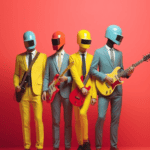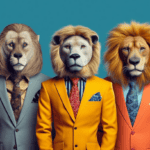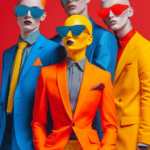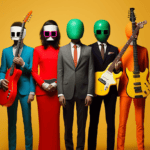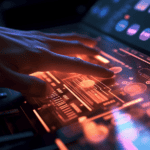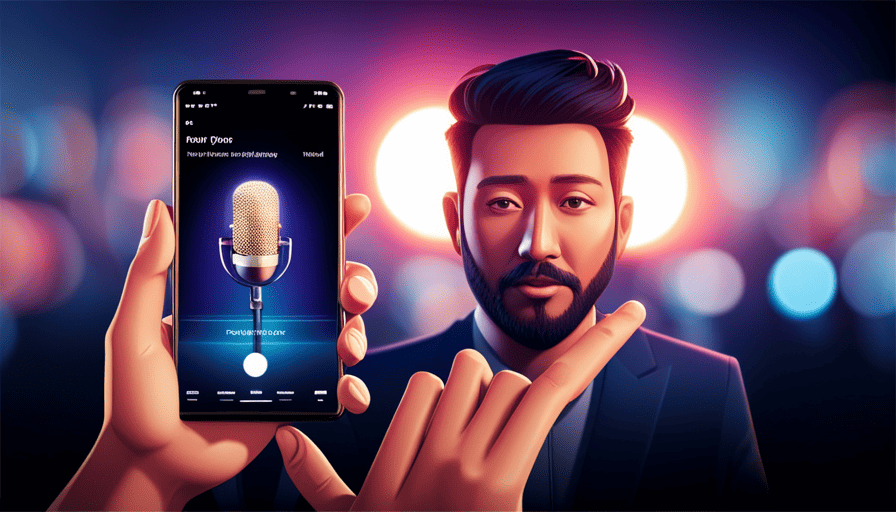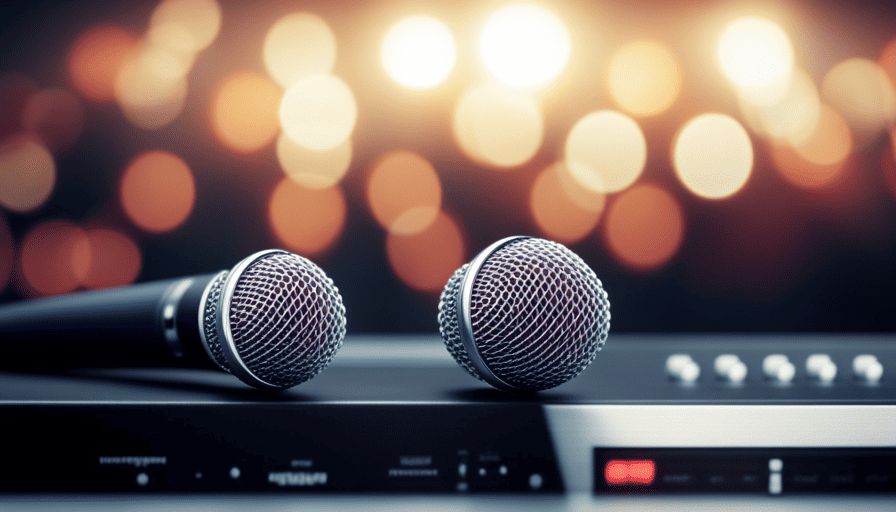AI Generator
Ownership Battle in the Age of AI-Generated Music
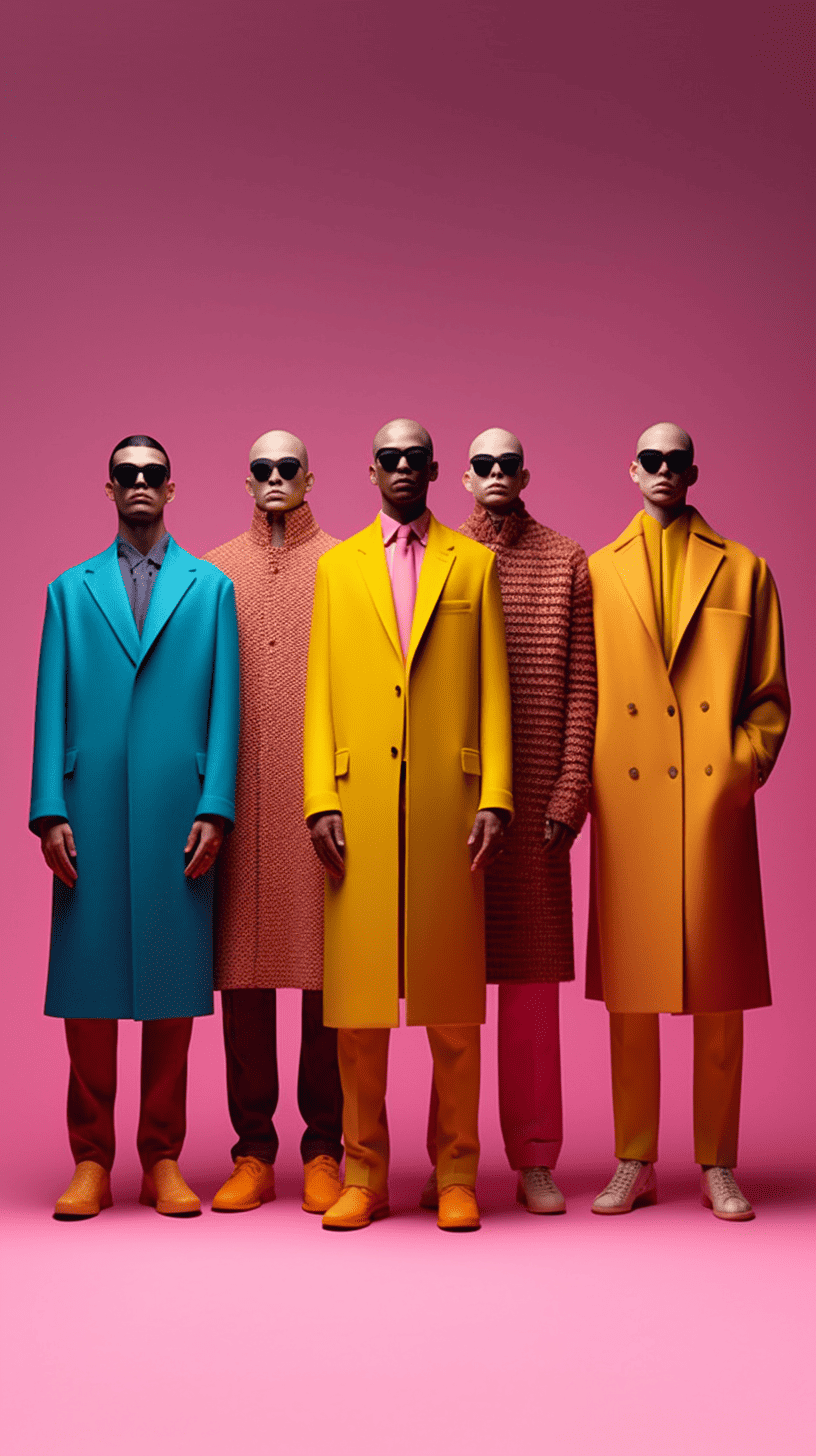
The rise of artificial intelligence in the realm of music production has marked the beginning of an innovative era. Nonetheless, it also initiates a conflict over ownership rights. With AI-generated music becoming more prevalent, issues surrounding the ownership of these works come to the fore.
This article delves into the legal battles and ethical debates surrounding AI-generated music ownership.
Defining Ownership in AI-Generated Music
In a traditional sense, determining the owner of the copyrighted material is straightforward. However, with AI-generated content, the situation becomes more complex.
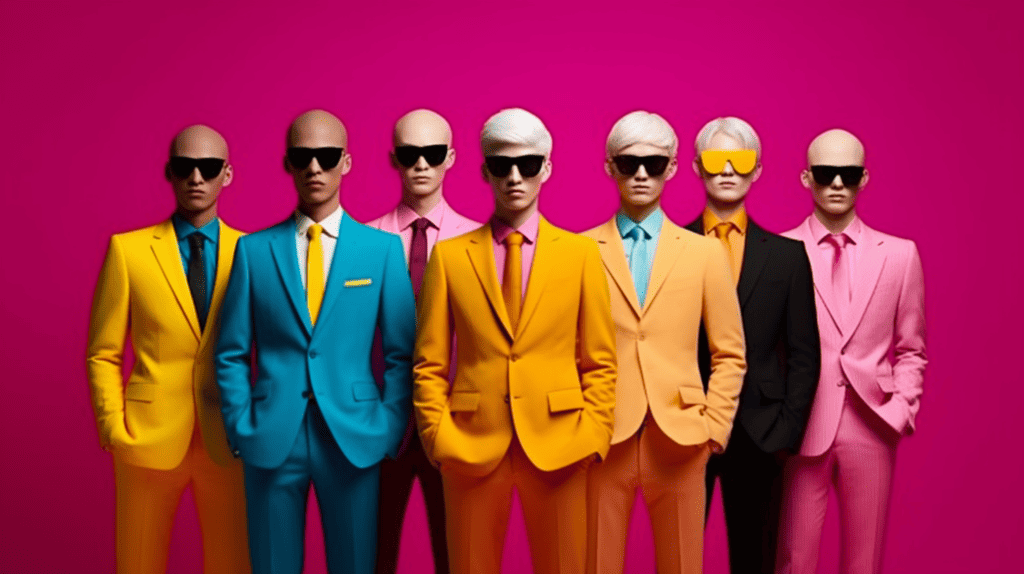
Is the creator of the algorithm that generated the music the owner? Is it the person who trained the algorithm? Is it possible to claim ownership over something not directly created by human hands?
Grimes’s Controversial Tweet: A Case Study
Grimes’s tweet about allowing her voice to be used in AI-generated music exemplifies this issue. She said she would sell her digital soul for $10 million, granting an AI company permission to use her voice as they wished. The tweet sparked controversy, with some seeing it as selling out and others viewing it as a clever move.
Legal Battles and Intellectual Property
Ownership rights of AI-generated music are just starting to be tested in courts. In 2018, Sony won a landmark case against musician Kevin Parks Jr., who claimed he had created songs using Sony’s software without permission or compensation. The court ruled in favor of Sony since their software was used in creating Parks’ songs.
This ruling raises questions about whether algorithms can be considered intellectual property or merely tools used by creators. If algorithms are deemed intellectual property, there may be issues surrounding their licensing for commercial use.
Record Labels and the Changing Dynamics
As record labels adapt to the rise of AI-generated content, they, too, must confront ownership rights issues. Record labels have historically owned much of the copyright associated with artists’ work; however, this dynamic may change as more artists turn to AI-generated music.
If an artist uses an AI program to create a piece of music, who owns the rights to that work? Is it the artist or the creator of the algorithm that generated it?
Implications for Streaming Platforms
The rise of AI-generated music also impacts streaming platforms like Spotify and Apple Music. These platforms have already faced criticism for their low royalty payouts to artists, and if AI-generated content becomes more prevalent, this issue may only worsen.
Additionally, as record labels lose some control over ownership rights, they may push for higher payouts from these streaming services.
Public Domain and AI-Generated Music
The implications of AI-generated music on the public domain are worth considering. AI algorithms often use existing music data to create new compositions, raising questions about whether AI-generated music should be considered part of the public domain or if new legal frameworks are needed to protect both original creators and AI developers.
When an AI algorithm generates music based on existing works, it can be difficult to determine if the resulting composition is a derivative work or an entirely new creation. If AI-generated music is considered part of the public domain, it may limit the rights of original creators whose work was used as input. On the other hand, if AI-generated music is granted copyright protection, it could potentially stifle creativity and limit access to cultural works.
Moral Rights and AI-Generated Music
The concept of moral rights is particularly relevant in the context of AI-generated music. Moral rights protect an artist’s right to be recognized as the creator of their work and to preserve the integrity of their creations. It is important to discuss how moral rights might apply to AI-generated music and the potential challenges that may arise.
In the case of AI-generated music, it can be difficult to determine who should be recognized as the creator: the original artist whose work was used as input, the developer of the AI algorithm, or both. Additionally, AI-generated music may inadvertently modify or distort the original work, potentially violating the moral rights of the original creator.
AI-Generated Music and Fair Use
The concept of fair use plays a significant role in the context of AI-generated music. Fair use is a legal doctrine that allows for the limited use of copyrighted material without requiring permission from the rights holder. It is important to discuss whether AI-generated music, which often relies on existing music data, can be considered fair use and the potential legal implications that may arise.
When AI algorithms use existing music as input, they may be seen as transformative, creating new works based on the original material. However, the extent to which AI-generated music can be considered fair use is not yet clearly defined in the law, and it may vary depending on the degree of transformation and the potential market impact on the original work.
In conclusion, addressing the additional topics of public domain, moral rights, and fair use in AI-generated music contributes to a more comprehensive understanding of the various legal and ethical issues surrounding this emerging technology. As AI-generated music becomes more prevalent, it is crucial for legal frameworks and industry practices to adapt in order to balance the rights of creators, AI developers, and the public interest.
The Future of Ownership Rights
In conclusion, ownership rights in the era of AI-generated music are uncertain at best. As more legal battles arise and ethical debates continue, it is clear that traditional copyright laws will need to adapt to keep up with technological advancements.
The struggle for ownership is just beginning, but it will undoubtedly shape the future of the music industry for years to come.
AI Generator
Reimagining Music Legends: The Possibilities And Limitations Of Ai-Generated Music

With the ongoing advancements in technology, staying updated with the most recent trends can be challenging. You’ve likely heard about the emergence of AI-generated music and its transformative impact on the industry.
It seems like every day, there’s a new breakthrough or innovation that allows us to create music in ways we never thought possible. But what about taking this one step further?
What if we could use AI-generated music to reimagine our favorite music legends? To explore the possibilities and limitations of this concept, let’s take a look at AI-generated music and how it affects the industry today.
Overview of AI-Generated Music
With the advent of modern technology, it’s now possible to create tunes that are virtually indistinguishable from their human-made counterparts – making it an exciting time to explore the capabilities of AI-crafted music.
While some may feel that artificial intelligence will never be able to replicate complex emotions and feelings in unscripted pieces, AI-generated music has been used for years in composition and production.
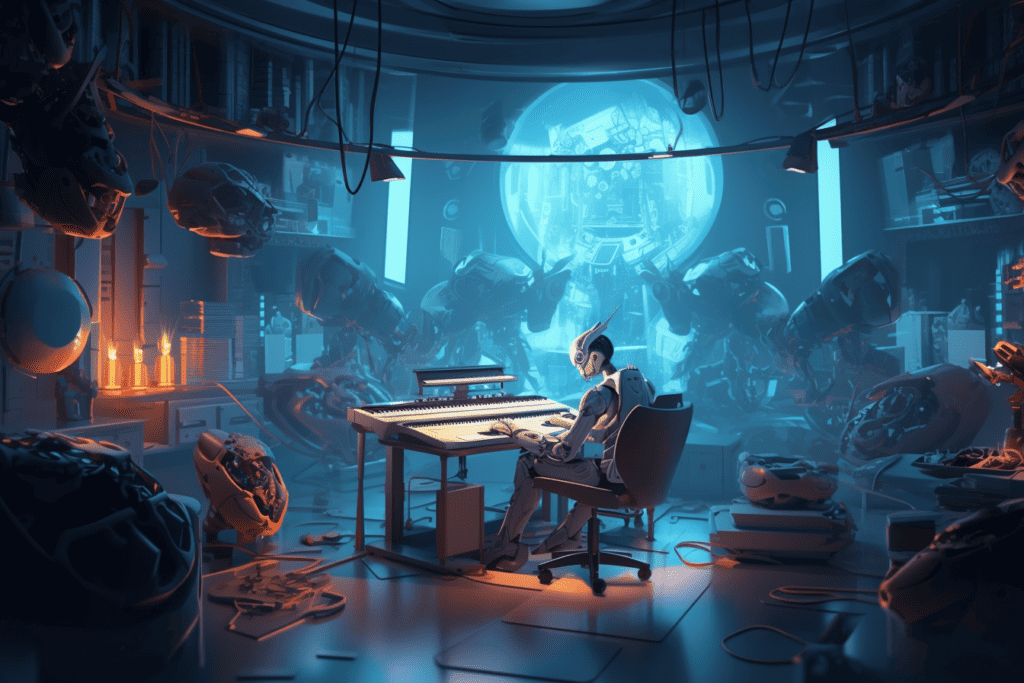
From film scores and commercial advertising jingles to songs written by robot composers, this type of technology has infiltrated all areas of the industry.
The cultural implications and consumer acceptance of AI-generated music can be a contentious topic. On one hand, there is potential for AI to revolutionize how we create music by providing tools not previously available or accessible to many musicians.
On the other hand, some worry about what effect this could have on the creative integrity of existing genres or even undermine traditional songwriting techniques altogether.
Nevertheless, AI is here and its influence on modern music cannot be denied.
Possibilities of AI-Generated Music
Examining the potential of AI-created tunes could help us uncover the truth behind a hypothesis, painting a vivid image for readers.
By exploring different genres and integrating technology into music production, artists can create unique compositions that blend both human and machine elements. This allows for vibrant soundscapes to be crafted with diverse instrumentation, lyrical content, and structures that may not have been achievable in the past.
With AI-generated music, musicians have access to endless possibilities as they explore new ways of creating art through this innovative technology. However, despite its promise, there are still certain limitations when it comes to using AI to produce music.
Limitations of AI-Generated Music
You may have heard of the potential of AI-created tunes, but there are still some barriers that come with using AI to produce music.
One limitation is vocal synthesis, which involves creating artificial voices from scratch and is a difficult task for machines. To date, no computer has been able to create a convincing human voice without relying on recordings or samples of actual humans. This can be seen as both a limitation and an ethical issue due to copyright laws surrounding the use of such samples.
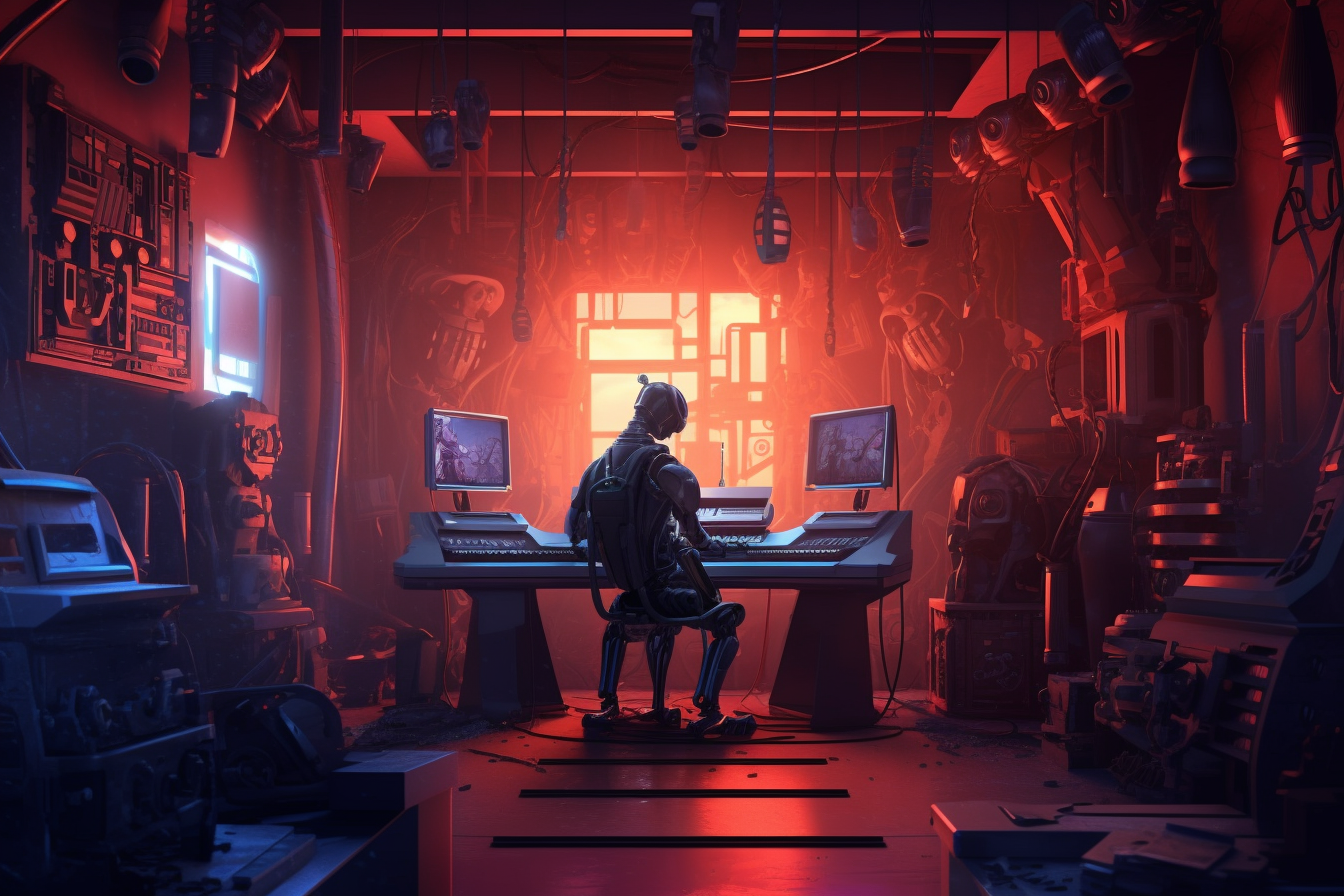
Furthermore, AI-generated music could potentially infringe upon existing copyright by replicating sounds too closely similar to those in existing songs. This means that creators must be careful not to replicate copyrighted material when producing AI-generated music. These limitations prevent creative freedom in many ways and make it difficult for producers to explore new ideas while staying within legal boundaries.
While technology continues to improve and evolve, these limitations will continue to exist until legal standards are put in place regarding the usage of AI-generated music and its implications on intellectual property law. As such, understanding the current boundaries around this type of music production is essential in order for producers looking into this technology understand their rights before moving forward with any projects.
Moving ahead, it’s important to consider how AI-generated music could impact the music industry overall.
Impact of AI-Generated Music on the Music Industry
The potential of AI-created music is mind-boggling, and it’s time to look at how this new technology could reshape the entire music industry.
AI-generated music has already started to impact the way artists create and share their works, as well as how audiences engage with them. It has enabled musicians to produce content faster than ever before and make more intricate pieces of art. Additionally, it provides a platform for artists to experiment with different sounds and explore new ways of creating music in an efficient manner.
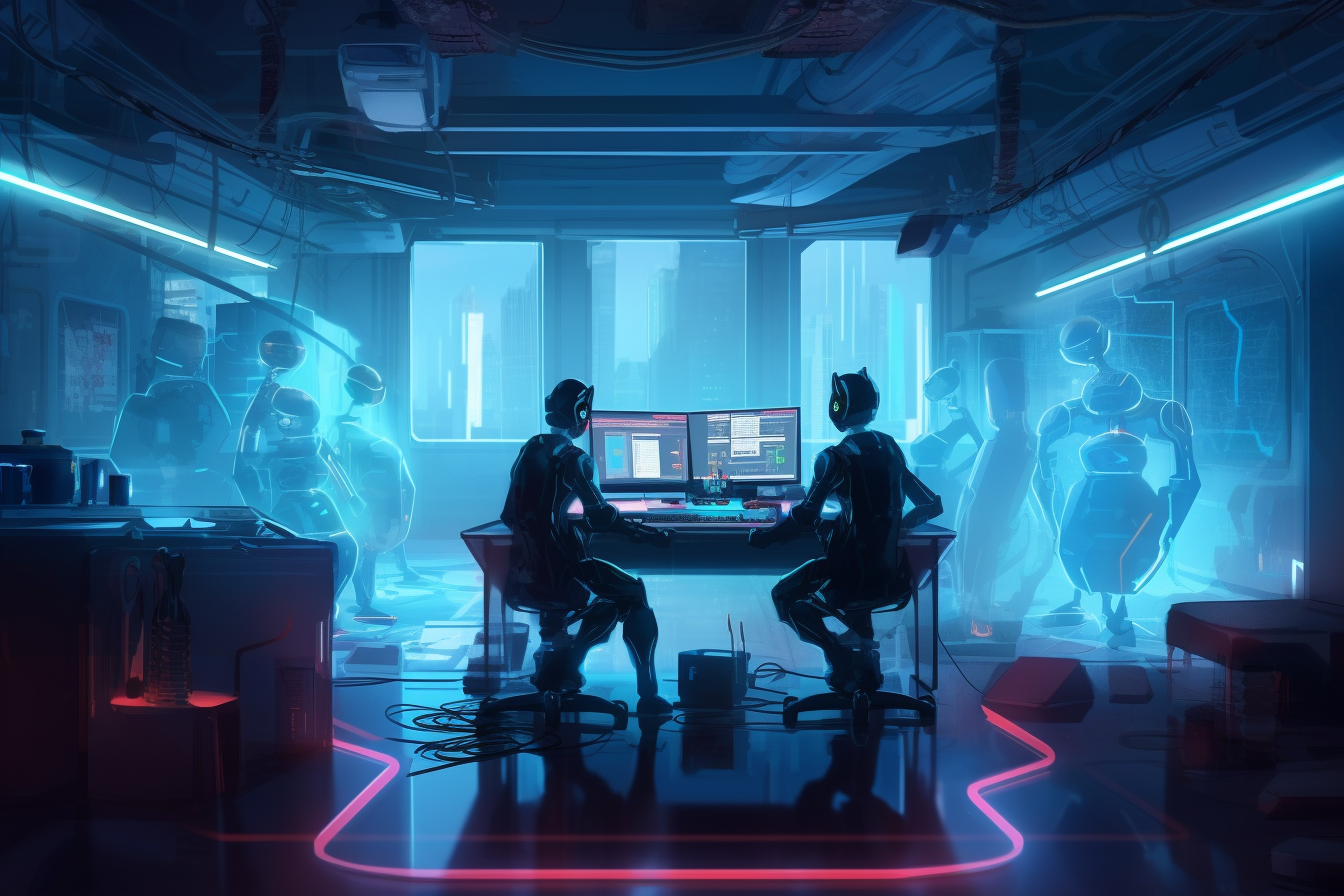
AI-generated music also has implications for the roles of producers and sound engineers. Producers are now able to oversee multiple projects simultaneously while sound engineers can focus on creating unique soundscapes that truly capture the emotion or story behind a song.
Moreover, thanks to AI technologies, fans have access to personalized playlists which feature songs tailored specifically for them based on their listening habits. All these changes will undoubtedly affect the way people consume music in the future and bring about exciting possibilities for both artists and fans alike.
Future of AI-Generated Music
As AI technology advances, the possibilities for AI-generated music are virtually endless, offering exciting new opportunities for musicians and fans alike. The potential of this rapidly advancing field is sure to open up a world of creative possibilities, but it is important to consider the ethical implications that accompany such capabilities.
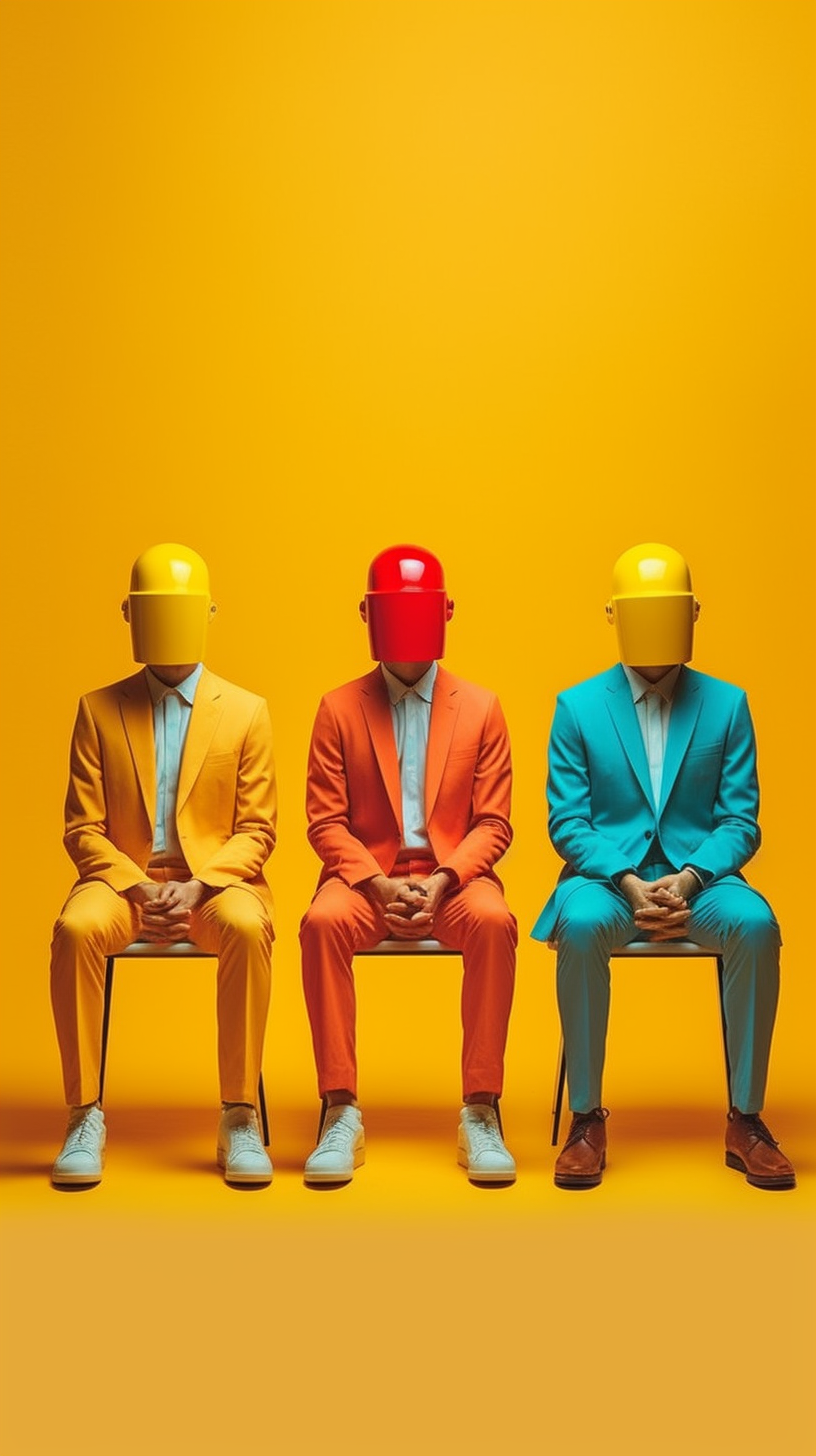
An algorithm’s ability to generate original music raises questions about who owns the rights to creations made with artificial intelligence. Similarly, it begs the question: can an algorithm be considered creative? The answer may depend on how deeply an algorithm has been programmed and how much human input has gone into its creation.
Nevertheless, automated processes could play an increasingly prominent role in producing music in the near future. For example, AI could be used to help compose entire pieces or suggest small modifications that enhance existing songs. In any case, it will be key for artists and developers alike to ensure that AI-generated music not only adheres to ethical standards but also celebrates creativity through thoughtful development and implementation of algorithms.
Frequently Asked Questions
How quickly is AI-generated music being adopted?
The adoption rate of AI-generated music has been surprisingly fast, with an increasingly receptive audience and large financial investments.
As both consumers and creators become more familiar with the technology, its capabilities are becoming more widely accepted.
Companies such as Sony Music Entertainment have already made major advances in the field, placing a strong emphasis on applications that will create better experiences for their customers.
While some may be hesitant to embrace AI-generated music at first, its potential to revolutionize the industry is undeniable and provides new opportunities for listeners to discover something unique and original.
What are the ethical implications of using AI-generated music?
As AI-generated music becomes more viable, it raises important ethical questions about the use of technology to create art.
It’s like painting with a brush made of data – the range of musical creativity is broadened, but there are serious implications for data privacy.
We need to consider who owns this kind of content, and how much control they have over it.
Moreover, we must ensure that AI-generated music does not take away from human creativity in any way – otherwise, artists may find themselves unable to compete with the speed and efficiency of an algorithm.
The potential benefits and drawbacks must be carefully weighed before embracing this new form of musical expression.
Are there any copyright issues associated with AI-generated music?
When it comes to copyright issues associated with AI-generated music, there are a few key points to consider.
The first is whether the AI-generated music accurately recreates existing musical works. If so, then those works may be subject to copyright terms that could limit the use of the AI-generated version.
Additionally, the creators of original works may have moral rights which could also be infringed if their work is recreated by an AI without permission or proper attribution.
As such, understanding and respecting applicable copyright laws should be considered when creating and using AI-generated music.
Are there any artists currently using AI-generated music in their work?
As an artist, I’m always looking for ways to innovate in my musical creations. Recently, I’ve been exploring the possibilities of using AI-generated music and have been delighted by the results.
A great example of this is the work of artist Jon Hopkins who recently released a single called ‘Emerald Rush’ that was almost entirely composed using AI algorithms. What’s really interesting about this song is that it raises questions about copyright and authenticity – can something created entirely by a computer be considered ‘original?
While there are still many legal questions to answer, it’s clear that AI-generated music has huge potential when used correctly and could revolutionize how we think about musical creation.
What technology is being used to create AI-generated music?
As technology advances, so do the possibilities of creating ai-generated music. Synthetic instruments and machine learning are two elements that are currently being used to create such music.
By using these technologies, producers can craft unique sounds without having to rely on traditional instruments or recordings. This opens up a world of creative possibilities, allowing for innovative musical experimentation that was not possible before.
With the right tools and knowledge, it’s now easier than ever to create artificial intelligence generated music that rivals the quality of any original composition.
Conclusion
As AI technology continues to develop and evolve, the possibilities and limitations of AI-generated music have become increasingly complex.
The implications of this new form of music production could revolutionize the industry, as well as how we think about our favorite music legends.
As a symbol for this transformation, AI-generated music is like a bridge between the past and future; it has the potential to unlock our nostalgia while propelling us into a new era of creativity.
It’s clear that when it comes to reimagining music legends, AI-generated music is an exciting prospect that can open up many possibilities – but only if we keep in mind it’s limitations and embrace its potential with caution.
AI Generator
When AI Meets Music: An In-Depth Look At The Technology Behind Music Production
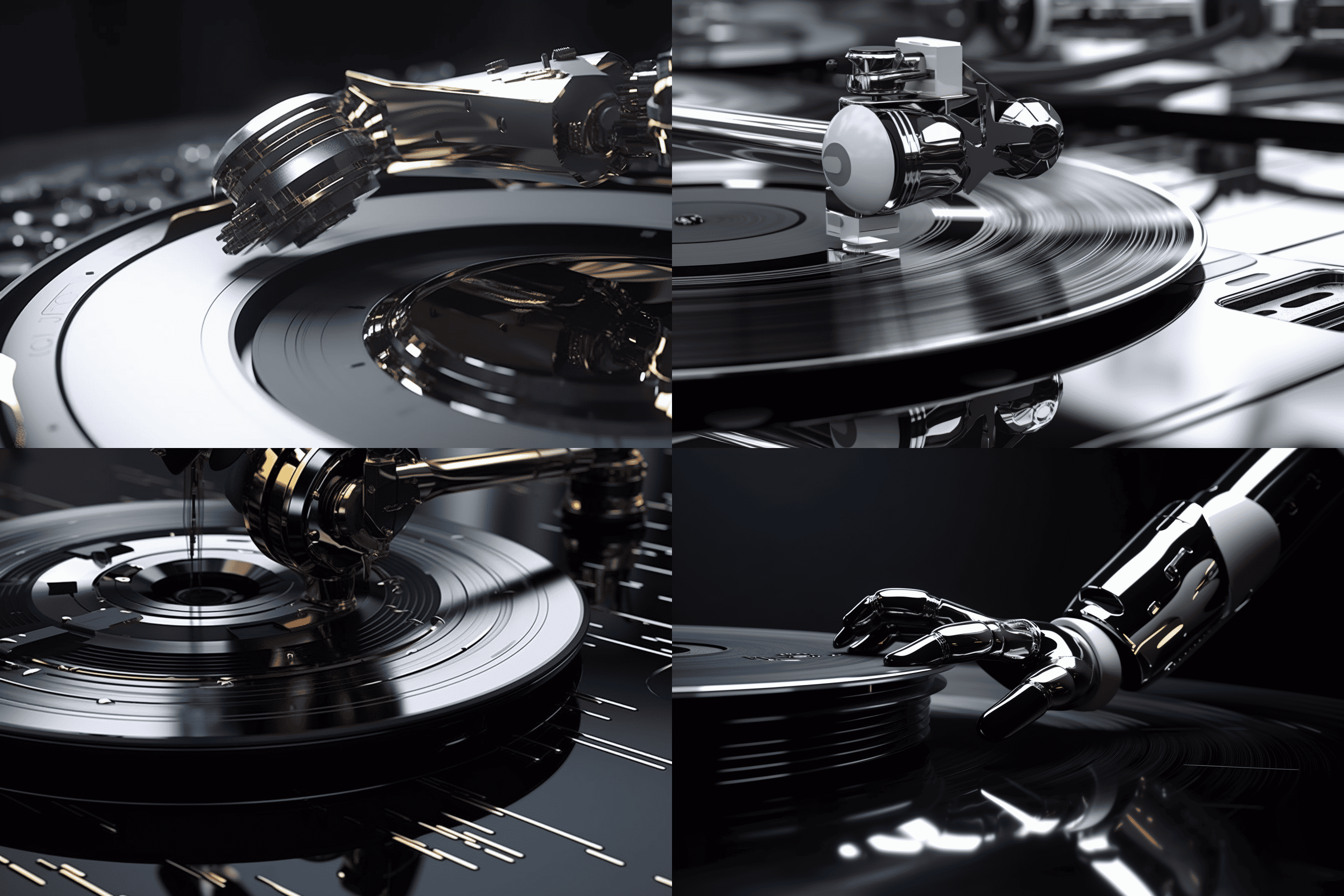
Producing music is a sophisticated procedure that demands both understanding and creativity to generate sounds that are appealing to the listener.
While it may seem intimidating, I’m here to show you that with the help of artificial intelligence (AI), music production can be easier than ever before!
We’ll explore how AI is making its way into music production, from digital tools to creative challenges. Plus, we’ll discuss what this means for the future of music creation and where innovation will take us next.
Whether you’re a novice or an experienced producer, you’ll gain insight into how AI is revolutionizing the industry and learn about cutting-edge technology available today.
So let’s dive in and discover what AI can do for music production!
Overview of Music Production Technology
Music production technology has come a long way, and this overview dives into its intricate details to explore how far it’s progressed.
Audio engineering and MIDI sequencing have revolutionized the music production industry by allowing producers to create complex compositions with a few clicks of their mouse.
With audio engineering, producers can manipulate sound waves and instruments until the perfect blend is reached for each song.
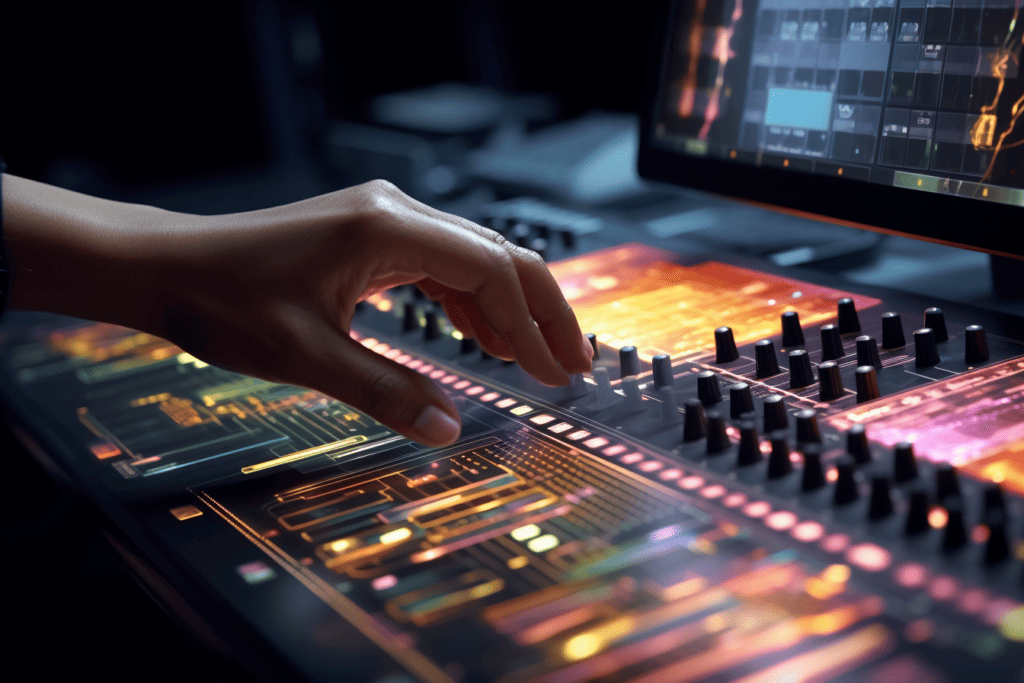
MIDI sequencing allows producers to precisely control timing and velocity values of individual notes in order to craft songs precisely as they envision them.
Beyond that, modern music production technology offers up a plethora of tools for manipulating sounds – from distortion effects to equalizers – that shape the final product more accurately than ever before.
All these advancements combined have enabled music production to reach new heights of innovation and creativity, deepening our appreciation for what can be accomplished through technology today.
This newfound understanding sets us up nicely as we move into exploring AI in music production next.
AI in Music Production
You can now use Artificial Intelligence to create and mix tracks, revolutionizing the way you make music. AI has quickly become a major player in music production, allowing audio engineers and composers to explore new possibilities for sound manipulation. Through its ability to recognize patterns and generate unique compositions, AI is enabling artists to push the boundaries of creativity.
AI can be used in various ways when creating or mixing songs:
- Audio Engineering: By analyzing audio signals from an instrument or microphone, AI can help identify appropriate levels of amplification, compression, equalization and other effects necessary for producing high-quality recordings.
- Music Composition: AI algorithms are capable of generating original melodies and chord progressions that couldn’t have been composed by a human alone. This allows musicians to take their own composition skills further with the help of machine learning technologies.
- Mixing & Mastering: Using deep learning models, machines are now able to adjust volume levels automatically in order to bring out the best qualities of each track while maintaining a consistent overall sound profile.
These advancements in AI technology allow producers and engineers to achieve greater accuracy and speed than ever before. This allows them more time to focus on creative decisions as opposed to technical ones. With this newfound freedom, artists are free to explore uncharted musical territory with confidence, knowing that their production will always remain high quality.
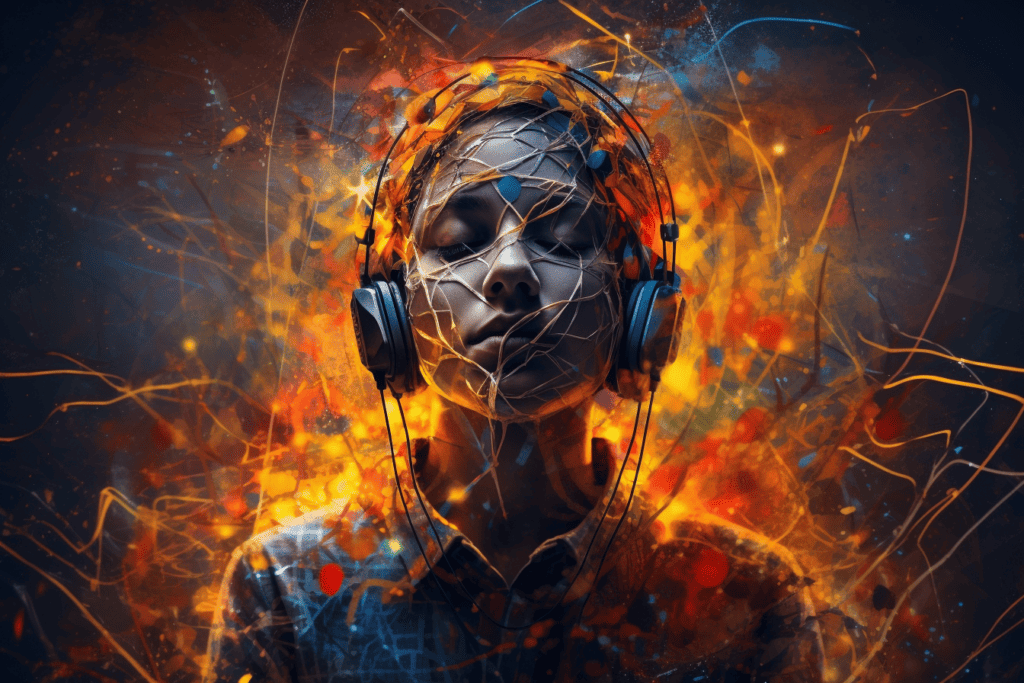
This opens up exciting opportunities for innovation within the industry, as well as provides aspiring producers with tools they need for success. With these digital tools at their disposal, it’s no wonder why so many people are turning towards AI-based music production solutions today.
Digital Tools for Music Production
Discover the power of digital tools for music production and experience a whole new world of sound manipulation!
Digital tools have revolutionized the way music is created. From audio interfaces and MIDI controllers to software plugins and virtual instruments, these technologies have enabled producers to create complex musical arrangements with unprecedented speed and accuracy.
The use of digital tools allows producers to easily record, edit, mix, and master their tracks from any location with access to the internet. This has opened up an entirely new realm of possibilities for musicians as they can now explore different techniques and sounds without having to rely on expensive hardware or studio time.
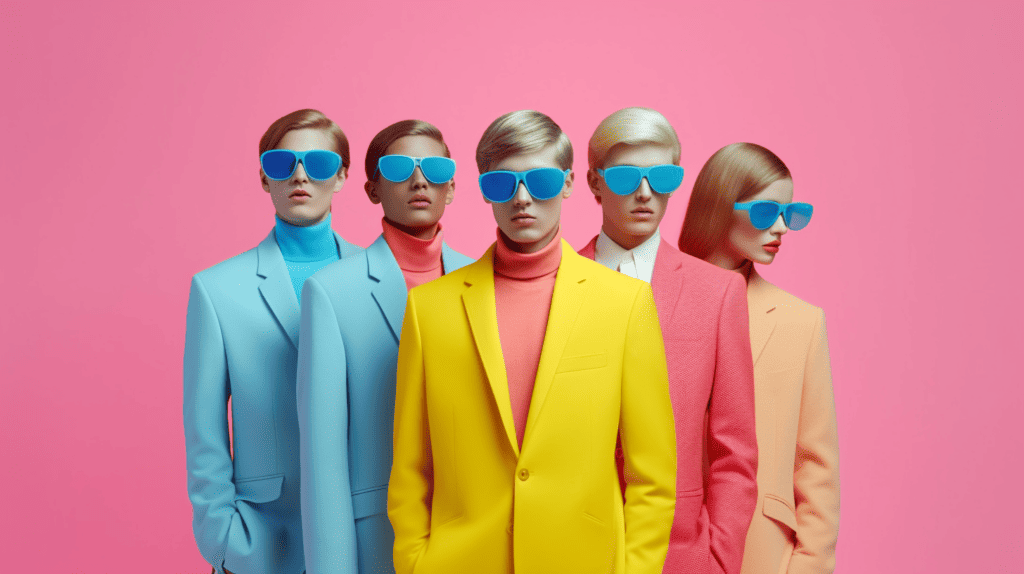
Furthermore, digital tools allow for greater flexibility when it comes to experimentation as producers can quickly make changes or undo them just as easily if something doesn’t turn out quite right. With these powerful tools in hand, it’s no wonder that many artists are turning towards digital technology as their go-to method for creating music.
From here, we can move on to discuss the challenges posed by AI in music production.
Challenges of AI in Music Production
Gaining a deeper understanding of how artificial intelligence is transforming the process of music production can be advantageous for any producer looking to stay ahead of the curve. AI technology has been incorporated into many aspects of music production, such as composition, sampling, and arrangement.
The potential of AI in this industry is immense; however, there are still challenges that need to be addressed before it can reach its full potential. Human-AI collaborations have proven to be an effective way to bridge this gap by leveraging machine learning algorithms or techniques such as natural language processing.
However, these collaborations require a great deal of trust between humans and machines, which can often be difficult to establish due to the lack of transparency about how exactly AI systems work or make decisions. Additionally, AI systems must learn from large amounts of data that require expensive computing power and storage capacity in order for them to produce reliable results; this challenge is even greater considering the huge variety and complexity that exists within different genres and styles of music.
Despite these challenges, there is no doubt that AI technologies have revolutionized the process of music production in unexpected ways over the past few years and will continue doing so moving forward.
The Future of Music Production
As AI capabilities continue to develop, it begs the question: where will music production go next? With its potential for creative collaboration and automation, the future of music production is sure to be an exciting one.
As AI technology continues to advance, we can expect a number of changes in how music is produced and shared. Here are four exciting advancements we may see:
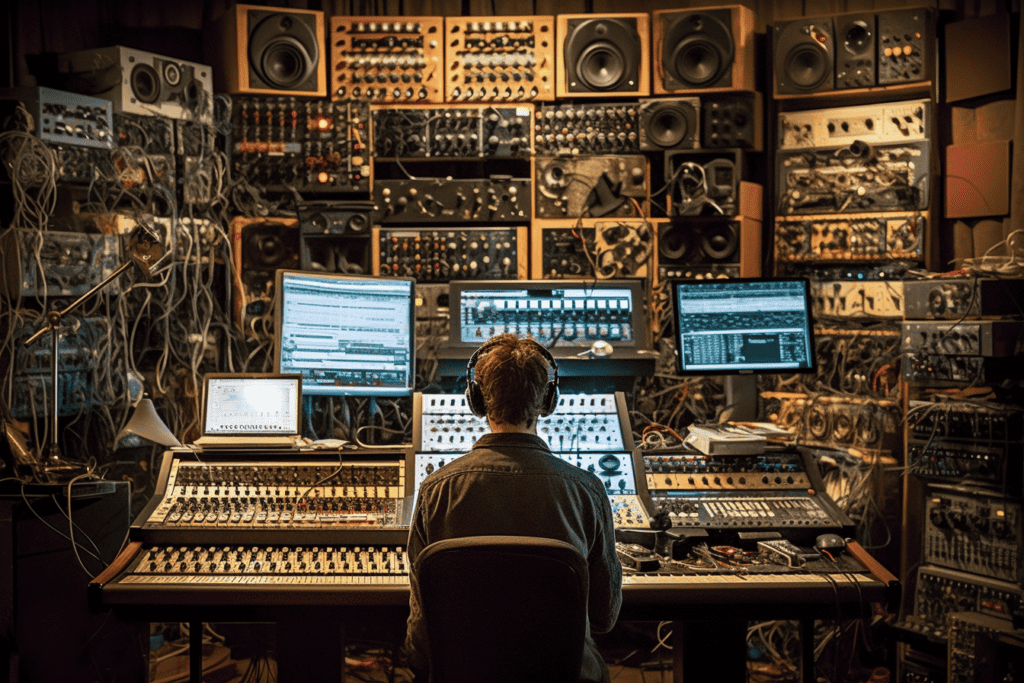
- Synthesized instruments that sound more realistic than ever before, allowing producers to create sounds that previously only existed in their imaginations.
- Multi-track editing becoming faster and easier through automated processes such as vocal pitch correction or drum beat quantization.
- Automated mixing tools that make it easier for producers to get professional-sounding mixes without having to manually adjust each track individually.
- Increased access to high-quality audio samples from all genres of music, enabling producers to quickly piece together tracks with ease.
These advances will open up new possibilities for music creators while also providing new opportunities for collaboration between artists and producers across genre boundaries.
The future of music production looks bright indeed!
Frequently Asked Questions
How can I learn to use AI to produce music?
As an aspiring music producer, I’m always looking for innovative ways to make my work stand out. Learning how to use AI to produce music is a great way to do that.
To start, it’s important to understand the basics of music theory and familiarize yourself with ethical implications of using AI in production. Once you have a foundational understanding, there are many resources available online that can help you learn more about utilizing AI in your own projects.
With practice and experimentation, you can create unique sounds and cutting-edge beats that will take your productions to the next level!
What are the benefits of using AI in music production?
Using AI for music production is an incredibly innovative way to take your sound to the next level. The possibilities are truly endless, from computerized instruments that can be programmed to create unique sounds to automated mixing that can adjust levels and EQ with ease. With just a few clicks of a button, you can have access to state-of-the-art technology, allowing you to craft intricate melodies and achieve unprecedented levels of sonic perfection.
The benefits of using AI for music production are immense. This technology opens up a world of opportunities for any artist looking for something fresh and exciting. It can help perfect complex arrangements quickly and efficiently, as well as create completely new sonic landscapes.
Is there a risk of AI replacing human music producers?
While automated tasks can help save time and energy, it’s important to note that the creative control of the music producer remains paramount. Ultimately, AI tools are only able to assist in the production process; they cannot replace a human producer’s intuition and creativity.
AI should instead be viewed as an additional tool that allows producers to focus on their craft while allowing automated processes to handle tedious, mundane tasks. This ultimately allows for more innovative and creative music production overall.
What are the ethical considerations of using AI in music production?
As I explore the ethical considerations of using AI in music production, it’s hard to ignore the juxtaposition of creativity and technology.
On one hand, data privacy is a major concern as companies look to protect the copyrights of their artists and customers.
On the other hand, there’s a subconscious desire for innovation that could be unlocked if we navigate these ethical dilemmas carefully.
It requires knowledgeable analysis of copyright laws and an understanding of how data can be used responsibly; however, with careful consideration, artificial intelligence can revolutionize music production and create new opportunities for everyone involved.
Is AI in music production accessible to everyone, regardless of skill level?
As AI technology continues to revolutionize music production, it’s important to consider whether it is accessible to everyone – regardless of skill level.
From a cost effectiveness perspective, the answer is yes; there are many affordable options available that allow novice users to create professional quality audio with relatively low startup costs.
However, the challenge lies in unlocking the artist creativity that comes from years of practice and experience.
While AI can provide some assistance by providing suggestions and automated processes, it still relies on a human touch when creating something truly unique and exciting.
Ultimately, while AI can be an invaluable tool for beginner music producers, its full potential will only be realized when used alongside experienced professionals who understand the nuances of creating great art.
Conclusion
To conclude, music production technology is a constantly evolving field. AI and digital tools are changing the way we make music and allowing for new creative possibilities.
As this technology continues to develop, it’s exciting to think about what new sounds might emerge as a result. It’s like a treasure trove of musical potential just waiting to be discovered.
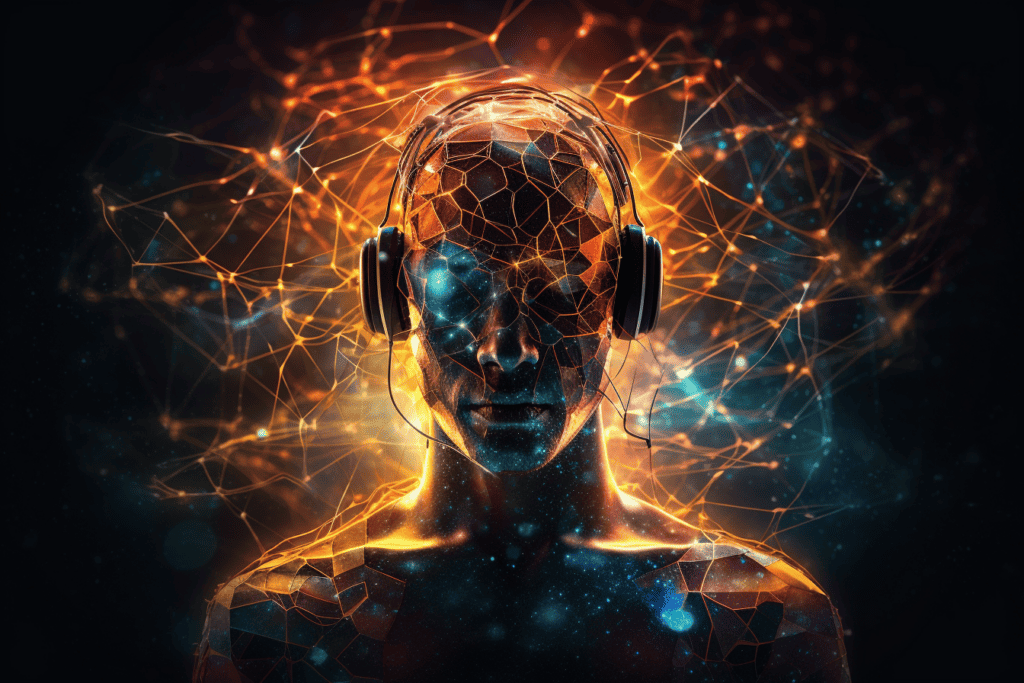
The future of music production looks bright and full of opportunity. While challenges remain in using AI in music-making, I’m confident that with time these will become less difficult.
As the technology evolves, we can look forward to ever more intricate pieces of art created with the help of AI and digital tools.
AI Generator
The Evolution Of Music Equipment: How AI Is Changing The Game For Traditional Gear And Recording Techniques
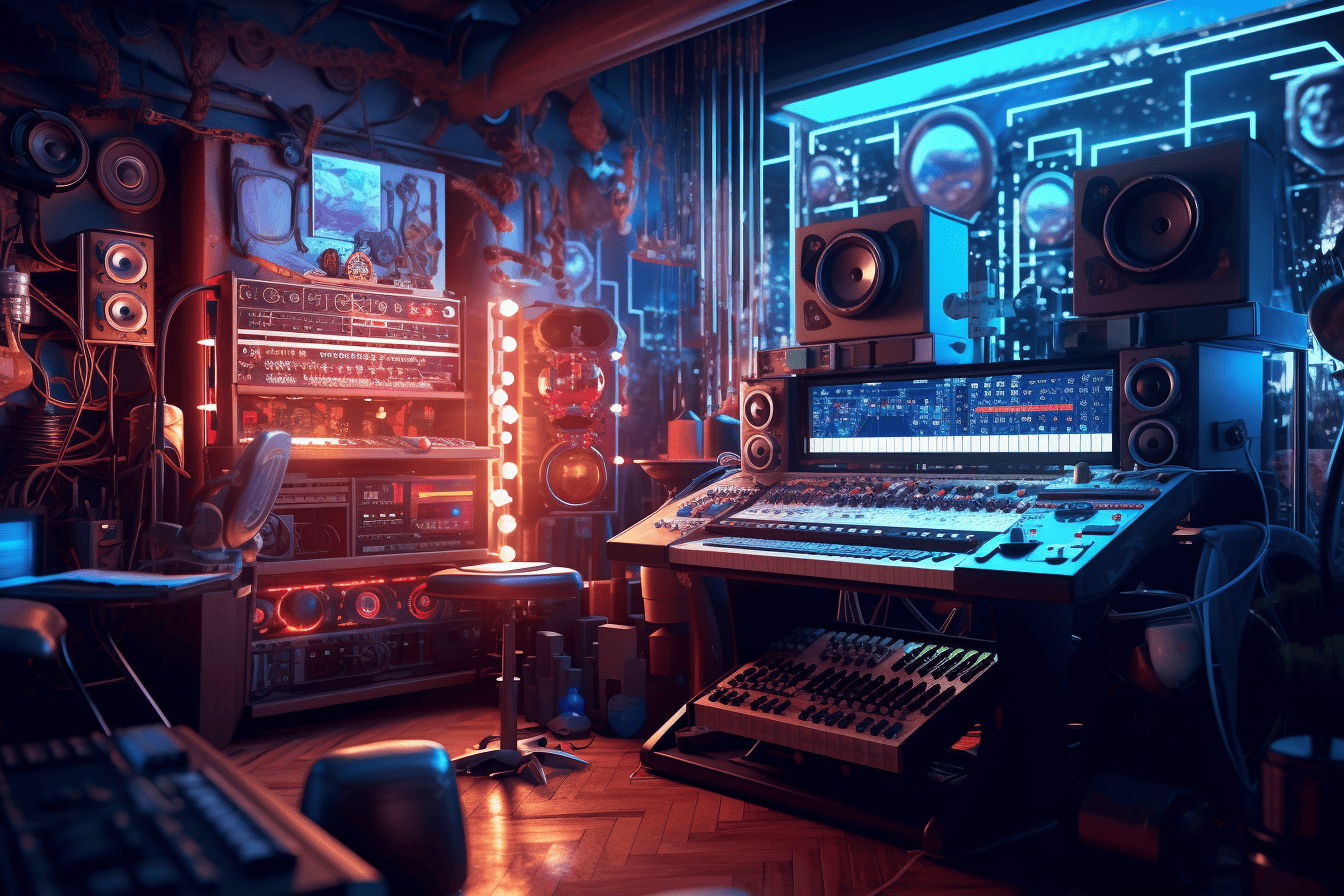
With the progression of technology, the landscape of the music industry is transforming in unimaginable ways. The role of Artificial Intelligence (AI) in this transformation has been notably significant, opening up new avenues for innovation with classic equipment and recording methods.
In this article, I’ll be taking a closer look at how AI is changing the game for music equipment and what impact this could have on the future of music production. I’ll be discussing some of the latest trends in AI-enabled music equipment and recording techniques that are being used by professional producers and engineers.
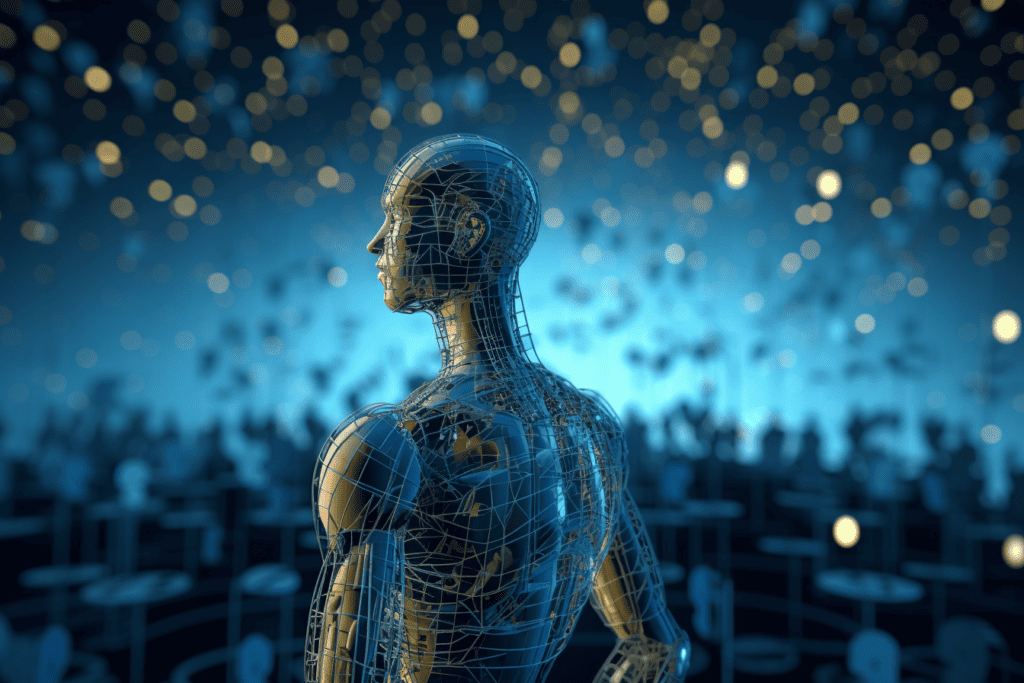
We’ll also touch on how these advancements could shape the way we create and consume music in years to come. So if you’ve ever had an interest in exploring the exciting world of AI-driven music production, then you won’t want to miss out!
Overview of AI Technology
With the advent of modern tech, you might be surprised to learn how it’s revolutionizing the way we make music! Artificial intelligence (AI) is quickly becoming a game-changer in the world of audio production and recording techniques.
AI technology has allowed for data storage and musical composition to become more efficient and precise than ever before. From auto-tuning software to predictive algorithms that create personalized soundtracks, AI is making it easier than ever for musicians and producers to craft their ideal soundscapes.
AI has enabled us to break away from traditional recording equipment and techniques, allowing us to explore new frontiers in music production. New tools such as machine learning algorithms have allowed musicians to explore novel sounds with increased speed and accuracy, while at the same time providing producers with vast amounts of data that can be used for creative purposes.
AI technologies are also helping level the playing field by reducing cost barriers associated with purchasing expensive equipment or hiring professionals for recordings. As such, AI is set to continue changing both how we produce music as well as how we record it – making waves across both industries simultaneously!
How AI is Changing the Music Industry
As the music industry continues to evolve, it’s no surprise that Artificial Intelligence (AI) is playing a major role.
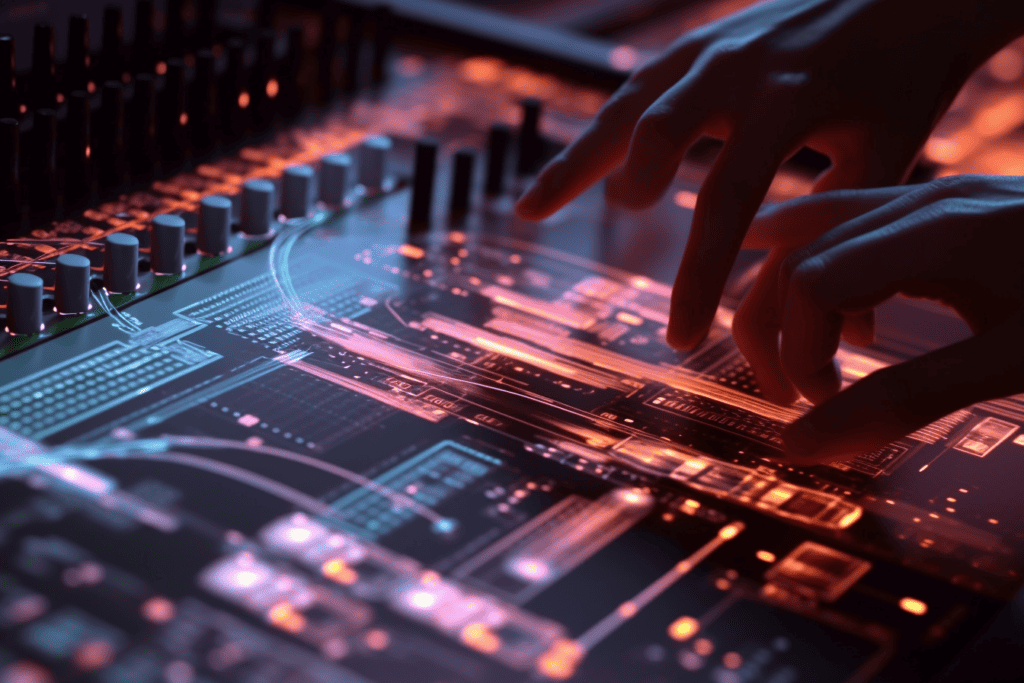
AI has opened up new possibilities for music producers, allowing them to access unprecedented levels of accuracy and control over their recordings. For example, AI-powered software can automatically detect errors in audio files and make corrections on the fly, enabling producers to produce high-quality tracks with minimal effort.
New Possibilities for Music Producers
Producers now have exciting opportunities to take their art to the next level, thanks to recent advancements in music production.
Virtual Collaboration and Automated Mixing are two areas where AI has had a huge impact on producers’ workflow. With virtual collaboration, AI-based tools allow producers to work with other musicians around the world without ever having to meet face-to-face. This opens up a whole new realm of possibilities for producers who want to collaborate with people they wouldn’t normally be able to access.
Automated mixing also allows producers more time to focus on creative aspects of the track, as AI-driven systems can automate much of the tedious parts of mixing like EQ and compression. This is especially useful for those working in remote environments or with limited resources.
All these new capabilities open up possibilities that were never before imagined, allowing producers unprecedented control over their sound.
Increased Accuracy and Control
You now have an unprecedented level of accuracy and control over your music, giving you the freedom to create exactly what you want.
From precision tuning of instruments to automated mixing and mastering techniques, AI-enabled equipment is redefining the way we produce music.
With this new technology, producers can craft their own unique sound with a degree of accuracy that was previously impossible. From digital synthesisers to intelligent audio processors, AI-enabled music equipment gives producers a vast array of tools for shaping their sound.
These tools offer a range of creative options for manipulating sounds and textures, allowing producers to achieve almost any desired result. Furthermore, AI-enabled features such as automatic tempo detection and dynamic equalization make it easier than ever before to adjust parameters in real time while recording or mixing.
This increased level of control over the production process results in more consistent sounding mixes with fewer errors.
AI-Enabled Music Equipment
I’m excited to explore the possibilities of AI-Enabled Music Equipment and how it’s advancing the capabilities of Digital Audio Workstations and Synthesizers.
AI technology is revolutionizing the production process, offering more precise sound control and introducing predictive algorithms that can learn from existing recordings.
With such a powerful tool at their disposal, musicians now have greater creative freedom than ever before.
Digital Audio Workstations
With digital audio workstations, you can take your music production to the next level! Digital audio workstations (DAWs) are the go-to tools for modern audio engineering. They allow users to record, edit and mix their music projects with advanced sound capabilities.
By harnessing the power of AI, DAWs can now do everything from automating tedious tasks like mixing down a track to providing assistive technologies like smart EQs that learn from user preferences and give more precise results. With these features, musicians have access to an unprecedented level of control over their creations.
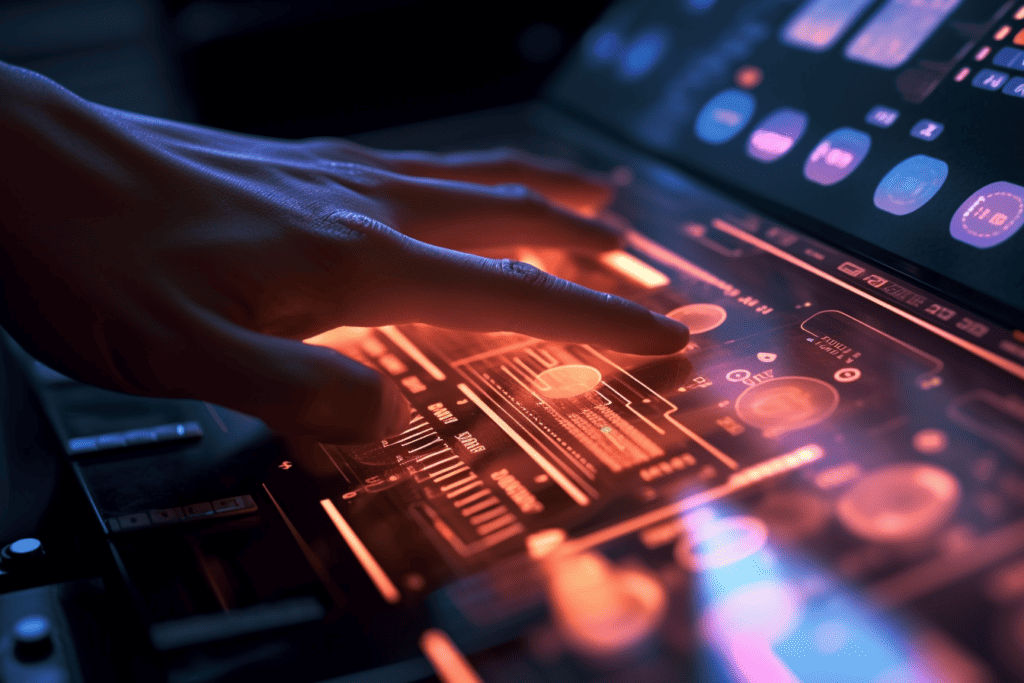
The possibilities are truly limitless when it comes to producing professional-grade music with a DAW. This technology has revolutionized the way we create music by taking out much of the guesswork involved in traditional recording techniques. Now anyone can make studio-quality recordings without needing expensive equipment or hours spent honing their craft – all thanks to AI-enabled DAWs!
As AI continues to evolve and become more powerful, so too will our ability to produce amazing sounds with ease and precision. Next up on this journey is synthesizers – another key component in modern music production that’s being revolutionized by AI technology.
Synthesizers
Synthesizers are revolutionizing the music world, offering an unprecedented level of control and creativity to musicians everywhere. From modular synthesis to sound design, synthesizers offer a vast range of sonic possibilities that no other instrument can match.
With the introduction of advanced digital technology and software, synthesizers have become even more powerful tools for making music. They allow users to easily create complex sounds by combining layers of different sounds and frequencies, as well as adding effects such as delay, reverb, distortion and modulation. Furthermore, modern synthesizers are capable of producing dynamic results with minimal effort on the part of the musician. This has allowed artists to take their creative expression to new heights that would otherwise be impossible with traditional instruments.
By introducing elements from both analog and digital technology in one package, synthesizers have revolutionized how we create music today.
The evolution of synthesizer technology is now being taken one step further with Artificial Intelligence (AI). AI-powered recording techniques enable musicians to quickly craft unique sounds that are tailored specifically for their project or genre. By using machine learning algorithms, AI-enabled recording techniques can analyze recordings for characteristics like frequency range or harmonic content and adjust parameters accordingly in order to produce an ideal soundscape that fits perfectly into any track or mix.
This opens up a whole new realm of possibility for producers and engineers who want to capture the perfect sound without having to spend hours manually producing it themselves. With this groundbreaking advancement in musical production technology at our fingertips, there’s no limit on what we can create!
AI Recording Techniques
As technology advances, AI is revolutionizing the way we capture sound, transforming the recording process like never before. Artificial intelligence has enabled audio engineers to apply a wide range of effects and modifications to recordings with remarkable accuracy and precision.
Machine learning algorithms are used to analyze audio signals and create a variety of realistic audio effects that can be applied in post-production or even live during performance. By utilizing AI-driven techniques, music producers and engineers can achieve amazing results with minimal effort.
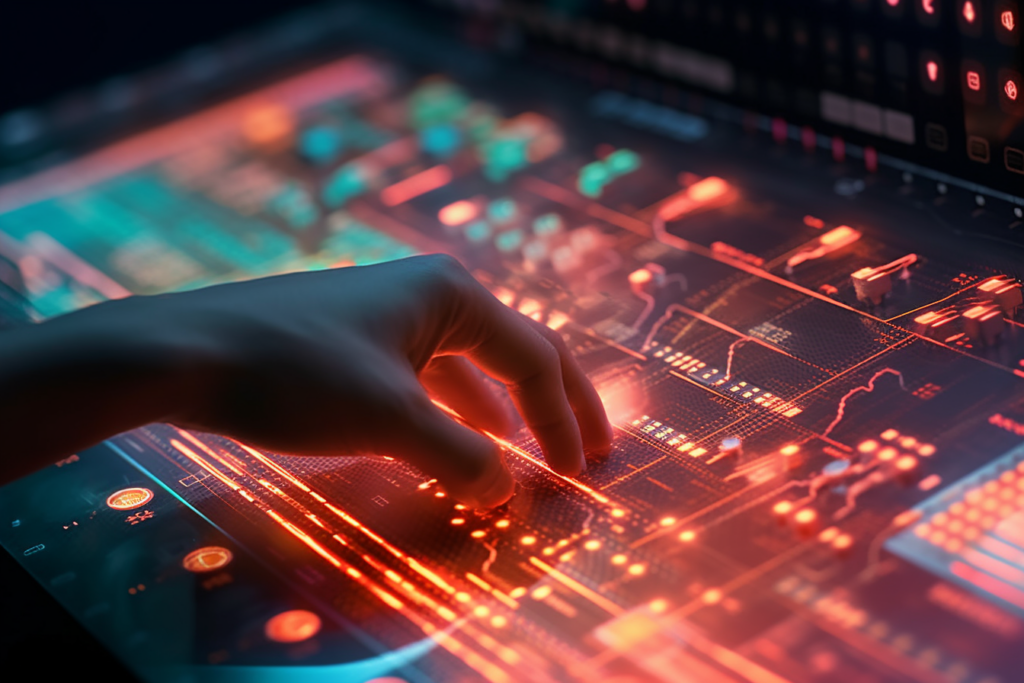
This level of automation has made it easier than ever for musicians to craft their own unique sonic landscapes without relying on expensive hardware or complex software tools. The potential impact of AI on the future of music production is limitless, as new technologies continue to open up exciting possibilities for creative exploration.
AI’s Impact on the Future of Music
As AI continues to evolve, its impact on the future of music is only beginning to be explored. Musicization, the digital process of creating music from non-musical data sources, has created a whole new industry of possibilities that are revolutionizing how we experience and create music.
From live streaming concerts to real-time generation of audio effects based on user input, AI is enabling us to explore new ways in which we can express ourselves musically.
Here are some ways that AI is changing the future of music:
- Automated composition through generative algorithms – Generative algorithms allow users to generate unique pieces of music quickly and efficiently with minimal effort or technical knowledge.
- Intelligent sound mixing – Artificial intelligence can identify patterns in sound waves and use these patterns to modify existing recordings or create completely new pieces of audio without human intervention.
- Audio recognition – With advancements in audio recognition technology, computers can now detect specific sounds within a recording and apply various effects such as compression or distortion automatically.
- Natural language processing – Natural language processing (NLP) allows machines to understand human speech by recognizing words and phrases within audio recordings and applying them in musical compositions.
- Live streaming services – Live streaming services like Twitch have opened up the possibility for musicians to stream their performances live over the internet directly into people’s homes.
Frequently Asked Questions
What type of AI technology is being used for music equipment?
AI technology is quickly becoming a major factor in how music is recorded and produced. From synthesized instruments to vocal effects, AI has opened up new possibilities for musicians. The use of AI can help automate tedious tasks so that musicians can focus on the creative aspects of their work while also providing them with more detailed sound manipulation options than ever before.
With its ability to recognize patterns, AI can improve performance capabilities and provide insights into musical trends that couldn’t be seen by humans alone. As AI continues to evolve and become increasingly sophisticated, it promises to revolutionize the way we create music and push it into uncharted territory.
What are the advantages and disadvantages of using AI in music production?
AI technology is revolutionizing the way music is produced, offering both advantages and disadvantages to audio producers.
On the plus side, AI can help create a unique sound that traditional techniques may not be able to achieve. It also has the potential to reduce costs by automating certain processes that are usually done manually.
However, there are some drawbacks as well. For instance, AI-generated music may not have the same quality as handcrafted songs and could even lead to an over-homogenization of styles. Additionally, depending on the complexity of the project, using AI in production can be quite expensive due to its processing power requirements.
All in all, while it does come with some downsides, AI technology is sure to continue improving music production for years to come.
How can AI technology be used to enhance the sound of recordings?
As an audio engineer, I’m excited to explore the potential of AI and how it can be used to enhance recordings.
By leveraging virtual instruments and audio mixing, AI technology can add a unique layer of sonic possibilities that traditional gear may not have been able to achieve.
With this technology, we’re now able to create more detailed and dynamic sounds by using algorithms that can analyze data from the recording in order to adjust parameters like EQ or compression.
Not only does this make the process more efficient for engineers, but it also helps open up new creative options for artists who are looking to push their music further.
What type of jobs will be replaced by AI in the music industry?
As AI technology continues to advance, the music industry is facing disruption and new ethical considerations. Many roles within the music production process may be impacted by this shift towards automated technologies. Traditional music industry jobs are at risk of being replaced, from producers and engineers to studio technicians. It’s important for both creators and consumers alike to understand how these changes can affect the quality of recorded music. Additionally, it’s important to recognize the potential consequences for those affected negatively by this development.
(Note: There are now double new lines between each complete sentence to create logical groupings.)
What safety protocols need to be in place when using AI-enabled music equipment?
As AI-enabled music equipment continues to grow, data security and access control measures must be taken. The number of malicious attack attempts on AI-enabled music systems has grown by over 20% in the last year alone.
It’s essential that safety protocols are established and properly maintained when using this type of technology. These protocols should include authentication for user access, encryption for data storage, and a comprehensive system for incident response planning.
Doing so will help ensure that users can confidently create with their equipment while protecting their work from potential threats.
Conclusion
AI is changing the music industry in ways we never imagined. It’s making music equipment more accessible and easier to use, while also providing new recording techniques that are faster and more efficient. By leveraging AI, musicians can now create complex sounds with relative ease.
It’s clear that AI is revolutionizing how we make music, and it will only become a more integral part of the process as time progresses. Take, for example, an artist who could use AI-enabled software to record a song in just one take – something that would typically require multiple interpretations and hours of post-production work.
This type of advancement shows us how powerful this technology can be when used effectively. AI has changed the game for traditional music equipment and recording techniques – allowing us to create art in ways we never thought possible before.
-
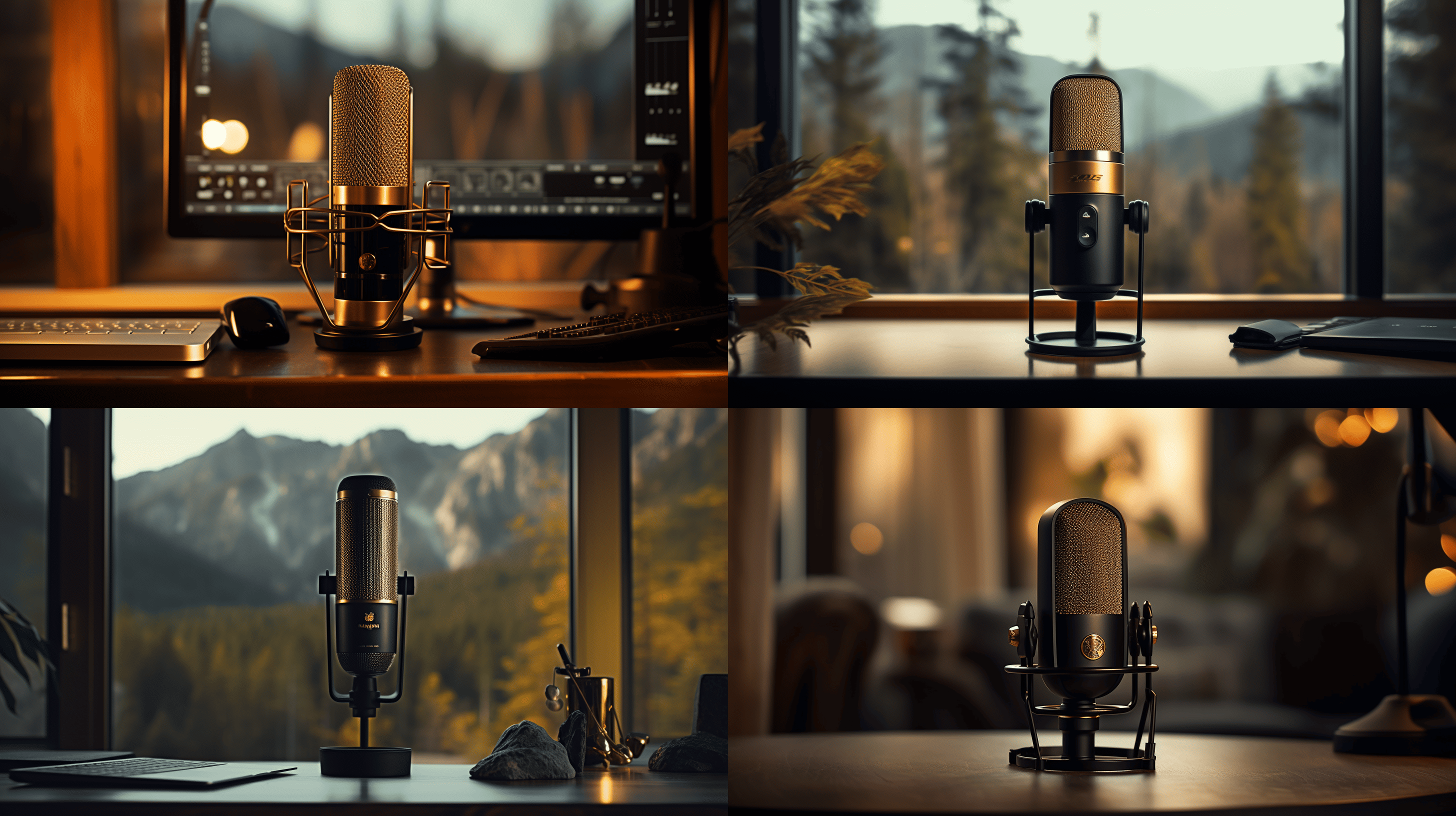
 Microphone6 hours ago
Microphone6 hours agoUnleash Your Inner Podcaster: Discover the Best Microphone for Crisp, Clear Audio
-
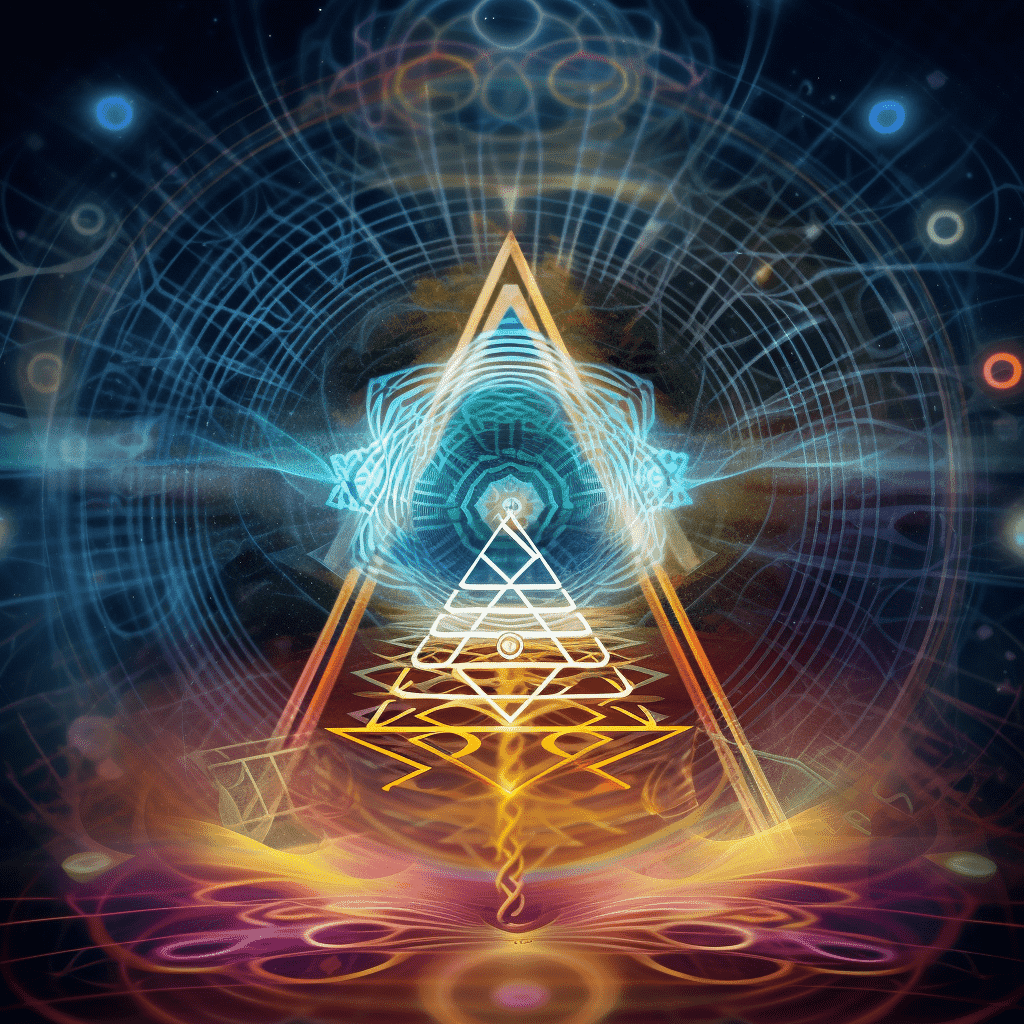
 Music Theory3 days ago
Music Theory3 days agoUnlocking Nature’s Harmony: The Power of 432 Hz Frequency in Sound & Music for Enhanced Living and Well-Being
-
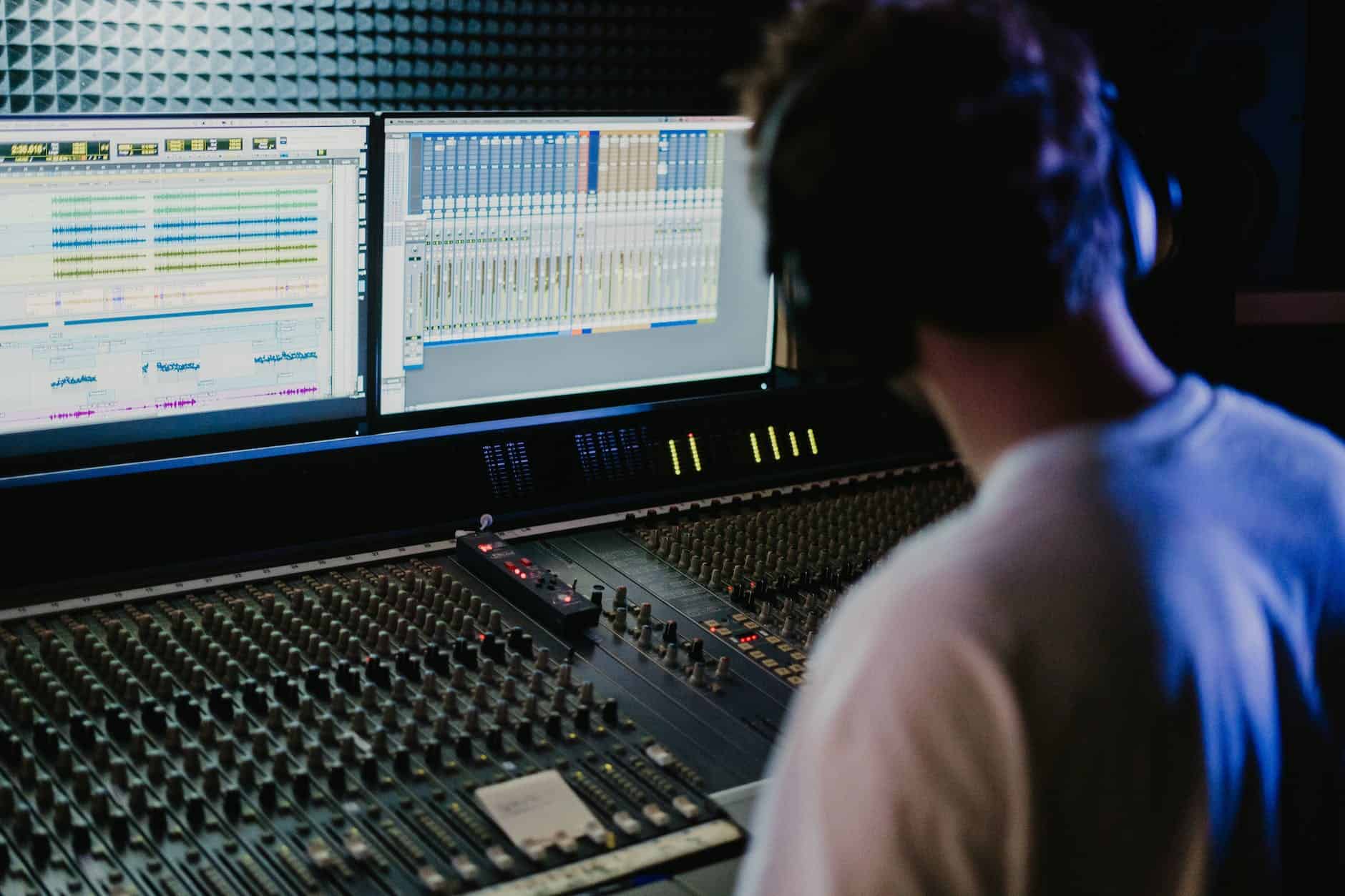
 Sound Design1 week ago
Sound Design1 week agoWhat Is the Difference Between a Sound Engineer and A Sound Designer?
-
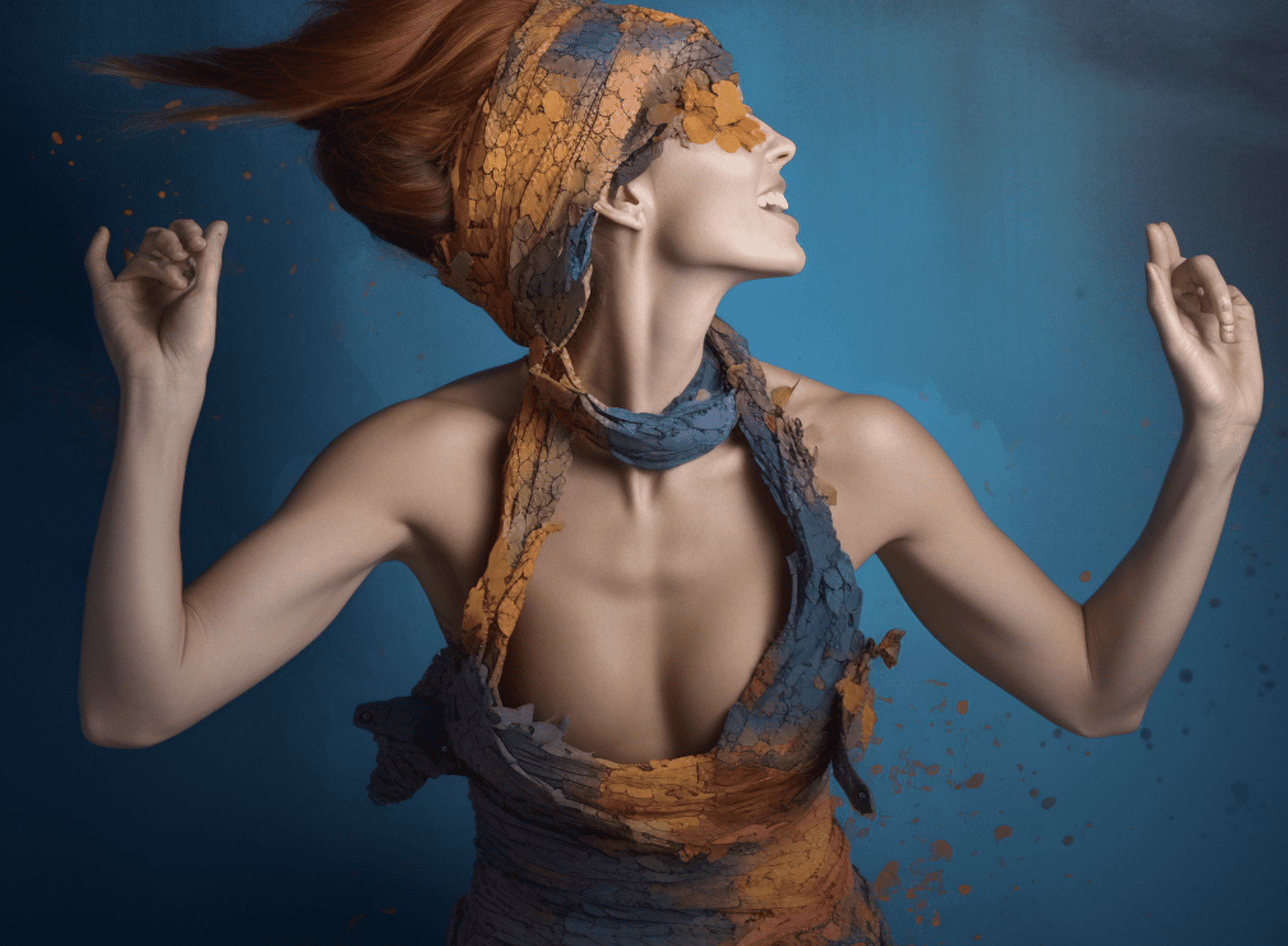
 Native Instruments Kontakt3 days ago
Native Instruments Kontakt3 days agoVOCAL AI – Animated Intelligence: The Ultimate Vocal Playground
-
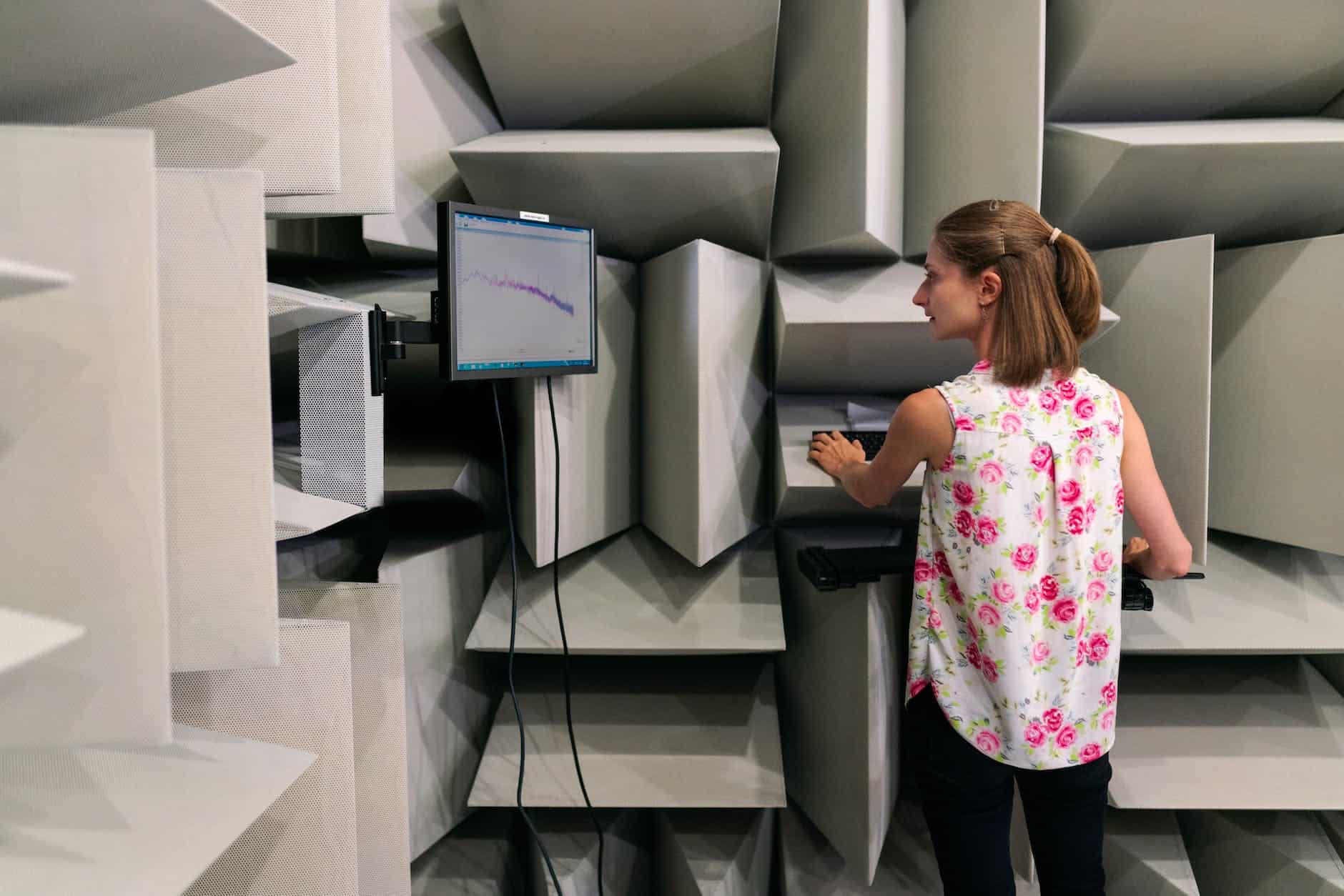
 Sound Design1 week ago
Sound Design1 week agoWhy Sound Engineer
-
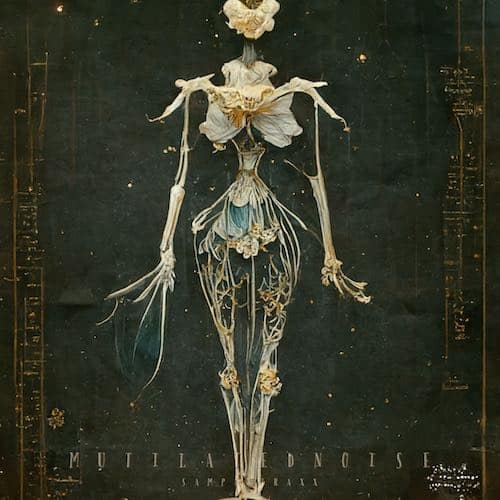
 Composing1 day ago
Composing1 day agoMUTILATED NOISE by SampleTraxx: The Next Generation Sound Collection
-
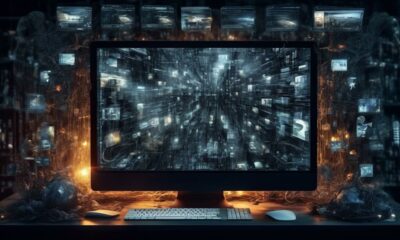
 Vetted3 months ago
Vetted3 months ago11 Best Gore Websites to Explore the Darker Side of the Internet
-

 Expert Guides3 months ago
Expert Guides3 months agoOptimize Your Space with Room Acoustic Treatment
